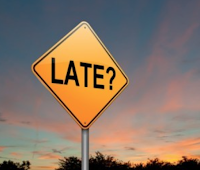I have never appreciated plain questions like: what is your happiest, or saddest moment, in life.
I thought they were limiting.
I, also, never believed that one moment can define your life: you can have many equally happy moments, or equally sad moments in life. Indeed, I thought, our lives are complex and our questions should be too.
But after many years I realized that, surely our lives are complex, but one single moment can change the trajectory of your life to a completely new dimension.
Now if you ask me a plain question such as: 'What is the moment you're most grateful for Asia?', I would gladly answer you.
I want to show you how a single moment, or a simple interaction with a complete stranger can change who you're fundamentally.
But to do so, I will have to give you some background.
When I first met my now husband, Ahmed Deeq, in Malaysia in 2010, we were classmates. Complete strangers. I was new to Malaysia, and my new found 'Somalinimo' was still very tender and fragile.
Previously, I lived in Syria for many years. For the longest time, I didn't have a sense of 'Somalinimo' and who I was. Yes, I heard stories about our land. Yes, I listened to some relatives recounting the horrors of the 'Qax' (forced migration) period in Somalia.
But it didn't mean anything to me. No one I knew, or directly related to me, was affected by it. My parents left Mogadishu few months before the collapse of the central government.
Doma, the city we lived in for many years had only four Somali families. That's it. Their children also were born in the diaspora so they also didn't have a sense of home, or identity.
Understandably, I blended in my environment then, Syria. I forgot I was Somali.
Till, I was reminded.
Fast forward to when I came to Malaysia, I encounter a huge Somali community. A neighborhood in Kuala Lumpur was called 'Muqdishu yare'; you'd see Somalis sitting in the cafe's, outside cafes, walking around, children running around, Somali grandmas accompanying their children. Suddenly, I feel Somali again. I am reconnected with my ‘Somalinimo’.
Little did I know that 'Somalinimo' doesn't mean one thing. and it’s more than just an ethnicity.
I romanticized the word ‘Somalinimo.’ I fell in love with it. I had hope that, one day soon, I will pay a visit to the homeland I've never seen. I attended Cultural events. I cheered LOUDLY for the Dhantoo and the blue flag. Then, I saw another flag that was also, to my surprise, Somali. It was the first time, believe it or not, I was introduced to the concept of Somaliland.
I couldn't accept it. I resisted it.
In the English class that Ahmed (a fierce Somalilander), and I shared we had many debates. He used to write essays about the political history of Somaliland. I, on the other hand, used to rob him of this right. I used to debate with him and turn the whole class atmosphere to a debate arena of Somalia vs. Somaliland.
In hindsight, this is what I think: I was an 'imposter.' I pretended I knew something I didn't know and defended a fantasy.
When in reality Ahmed was..defending his truth.
Ahmed has lived his whole life in the mother country. Ahmed lived its political chaos, his whole family was affected by its outcome. He believed in the re-birth of Somaliland.
And here I am a person who didn’t, yet, step a foot in Somalia/Somaliland has the audacity to open my mouth.
Outrageous, right?
Whether you agree or disagree with me, he was closer to the truth than I was ever.
But anyhow, he tolerated me. He tried to be rational with me but I wasn't having it, till we finally agreed to disagree.
We parted ways; I moved to the Philippines.
Years later, we get in touch again, while I'm working in SOMALILAND. Of course, he could not believe it.
This time around I was more mature and open-minded. We dissected issues and talked about Somali history.
I learned more history from Ahmed than I ever did from any textbook.
Looking back, what I appreciate most about him is that he always kept the door wide open for discussion, he never attacked or slandered anyone, he was straight to the point, and always dissected issues like an expert. Because he is one (He has a bachelor and masters in Political Science).
I, on the other hand, listened, this time around. Because I knew better. I had the chance to go to the mother land, work, and live there.
I understood that 'Somalinimo' was complex.
However, I had a better sense of what 'Somalinimo' is. And what constitutes a Somali person.
For me, it's, of course, bigger than recent history, division, and/or politics. It goes way back. It's our back bone.
I could not be more wrong when I tied 'Somalinimo' to a political symbol like a flag. Then tried to defend it.
I am, now, married to that Somalilander and I am PROUD of it.
Through out my journey of discovering my Somali identity, what 'Somalinimo' means to me, the realities of what's called 'Somali Weyn' (The greater Somalia), Ahmed was there.
And never did he judged or belittled my version of 'Somalinimo', he never called me 'Ciyaal caseer', he, also, never imposed ‘his’ version of ‘Somalinimo’ on me either. He only discussed.
And I wish more of us can do that. If we did that,I’m sure Somalia Weyn would be a less problematic place.
So, here's my answer to your 'plain' question:
'I am grateful for the moment I opened my mouth, though foolish, that day because I had the chance to meet this great man I now call my husband;
Ahmed Mahamed.
💜
By: Asia Aboosy
Ps. This picture was taken in Hargeisa Cadeey.






